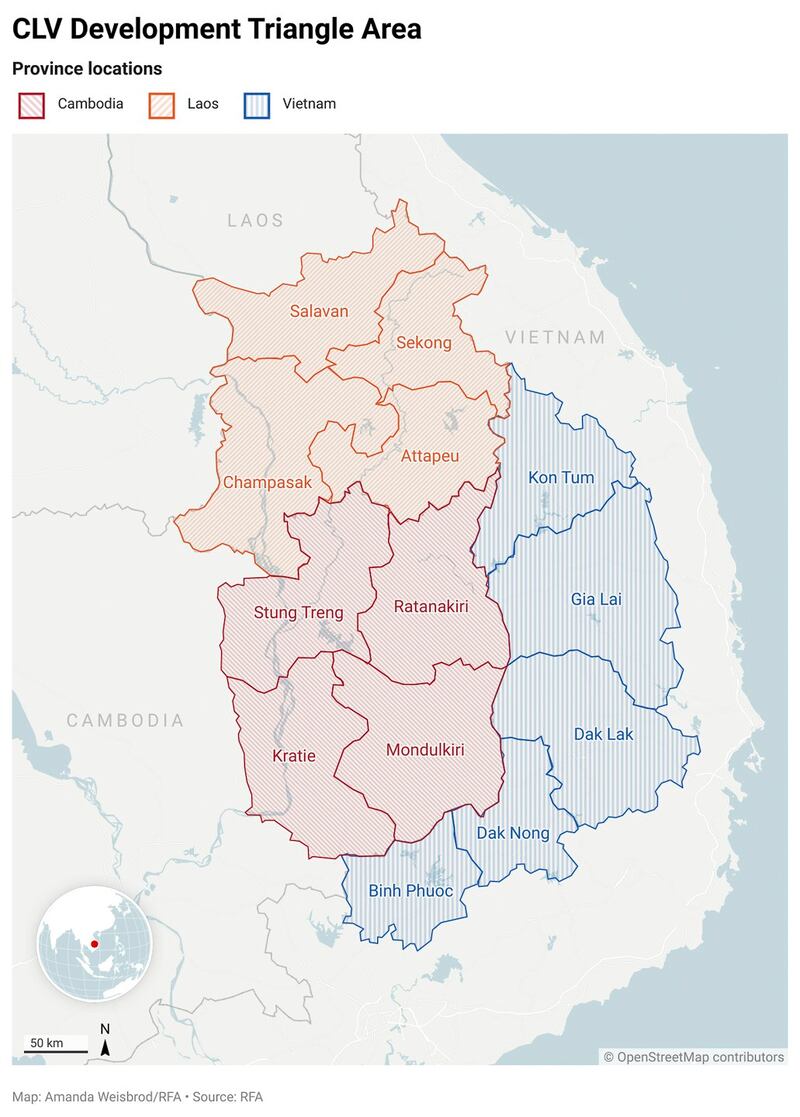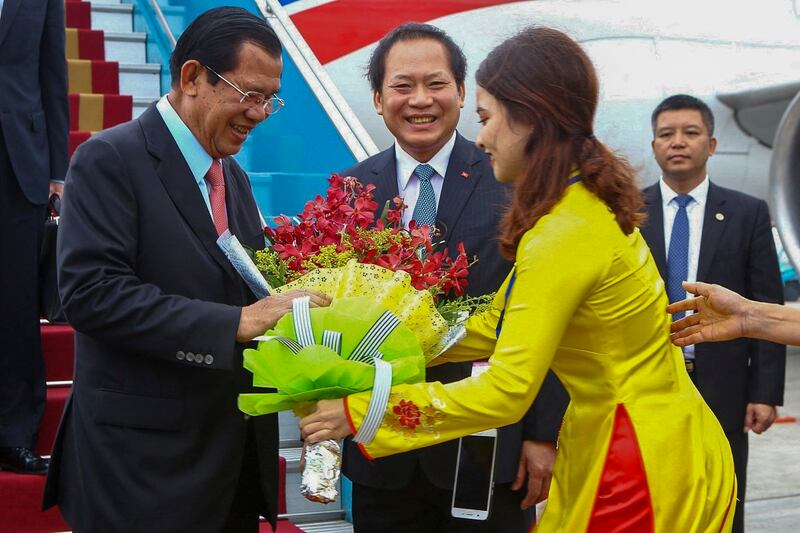Cambodia will withdraw from a 25-year-old economic cooperation agreement with Laos and Vietnam that has been the focus of recent online criticism and protests from opposition activists, Senate President Hun Sen said on Facebook on Friday.
The Cambodia-Laos-Vietnam Triangle Development Area, or CLV, has been used as "a political weapon to slander and attack the government by constantly lying to the people, and making people confused," Hun Sen wrote.
“Taking into account people’s concern on territory and the need to withdraw weapons from the hands of extremists,” the government “has decided that Cambodia will complete its participation” in the CLV.
The deal forged in 1999 was aimed at encouraging economic development and trade between Cambodia’s four northeastern provinces and neighboring provinces in Laos and Vietnam.
But recently, some activists began expressing concerns that the CLV could cause Cambodia to lose territory or control of its natural resources to Vietnam.
Many Cambodians consider Vietnam an historic enemy and often mention the loss of territory known as Kampuchea Krom – a region in the lower Mekong Delta that comprises much of present-day southern Vietnam.

Last month, Cambodians living overseas held protests against the CLV in South Korea, Japan, France, Canada and Australia. Planned demonstrations in Cambodia on Aug. 18 were never held after the government deployed security forces and arrested more than 30 people.
Hun Sen’s statement on Friday called the protests “an attempt to destabilize society.”
On Friday, Foreign Minister Sok Chenda Sophea informed the Lao and Vietnamese foreign ministers of the withdrawal in a letter that said “the cooperation mandate had reached its objectives.”
Public awareness initiative
Hun Sen stepped down as prime minister last year in favor of his son, Hun Manet, but he retains power as head of the ruling Cambodian People’s Party and as Senate president.
Hun Sen’s statement said that he, Prime Minister Hun Manet and other ministers had agreed to the withdrawal. Hun Manet reposted his father’s statement on Facebook.

Amid the crackdown on planned protests last month, the government unveiled an initiative to fund educational trips to the border for Cambodians worried about territorial loss.
Hun Manet's cabinet also announced the creation of a Foundation for Border Infrastructure Development to pay for projects in remote border areas.
The government listed the names of six banks where people could send donations, although it was unclear what infrastructure projects would be funded by the foundation.
RELATED STORIES
[ EXPLAINED: Why is Cambodia threatening arrests over a 3-nation economic zone?Opens in new window ]
[ Cambodia announces fundraising effort for ‘border infrastructure’Opens in new window ]
[ Cambodia arrests 30 amid warnings over anti-CLV demonstrationsOpens in new window ]
[ Police arrest activists after Facebook video angers Cambodia’s Hun SenOpens in new window ]
Hun Sen’s statement said the government would continue developing the four northeastern provinces – Kratie, Stung Treng, Mondulkiri and Ratakankiri – through its membership in ASEAN, the Association of Southeast Asian Nations, and in the Ayeyawady-Chao Phraya-Mekong Economic Cooperation Strategy, an organization that includes Thailand, Laos, Vietnam, Cambodia and Myanmar.
South Korea-based opposition activist Sor Sokhem said he welcomed Friday’s announcement.
“It is what we have asked for,” he said. “But the government must release all activists who were arrested over the CLV. The government has committed many mistakes such as human rights abuses.”
Translated by Yun Samean. Edited by Matt Reed and Malcolm Foster.
